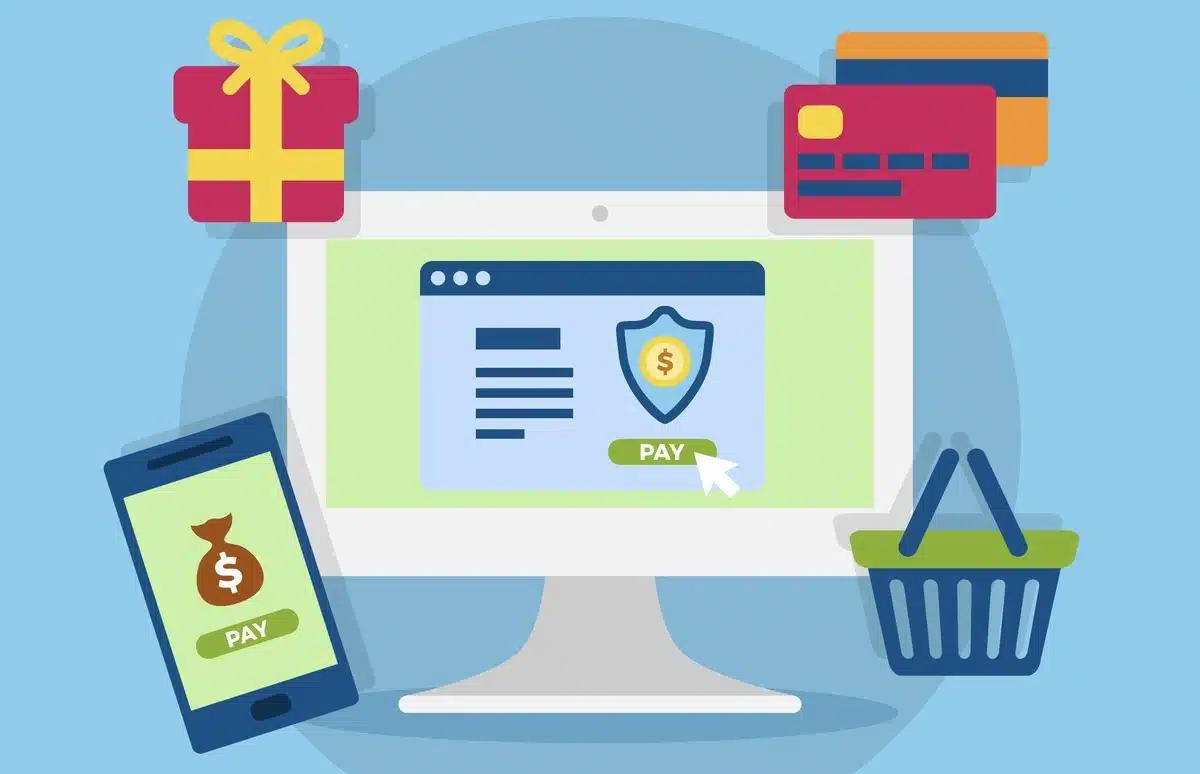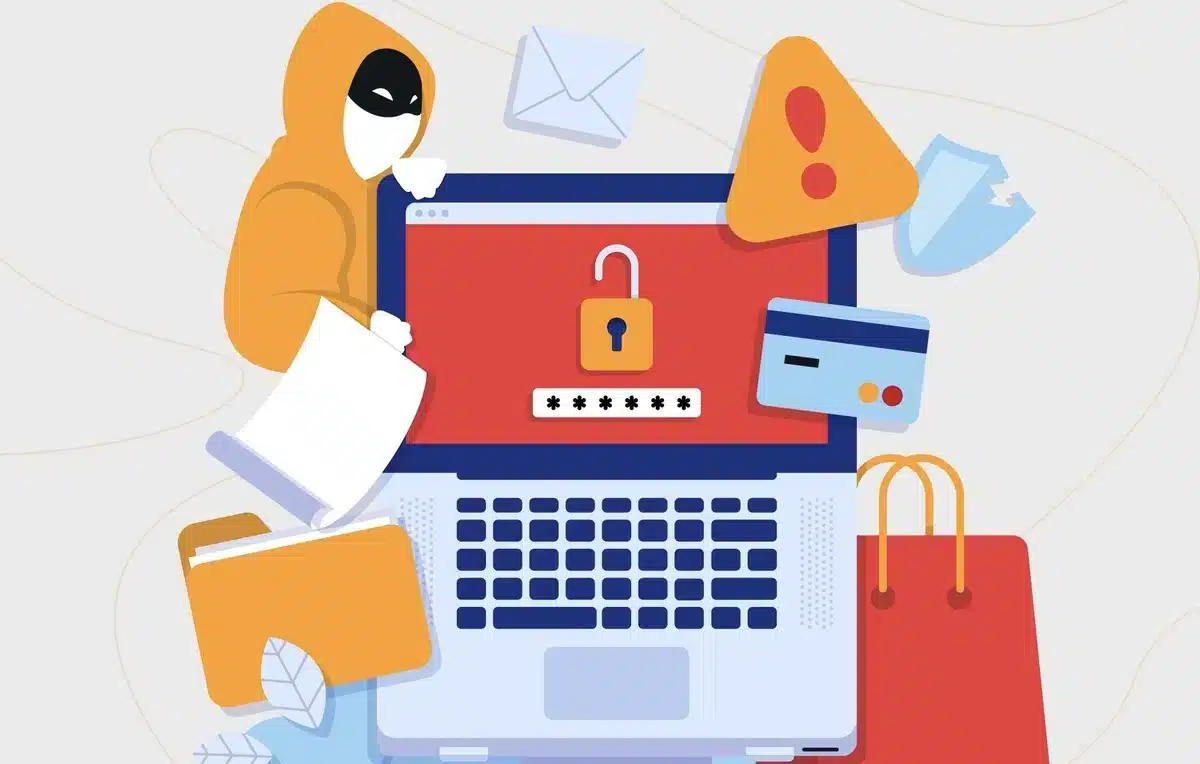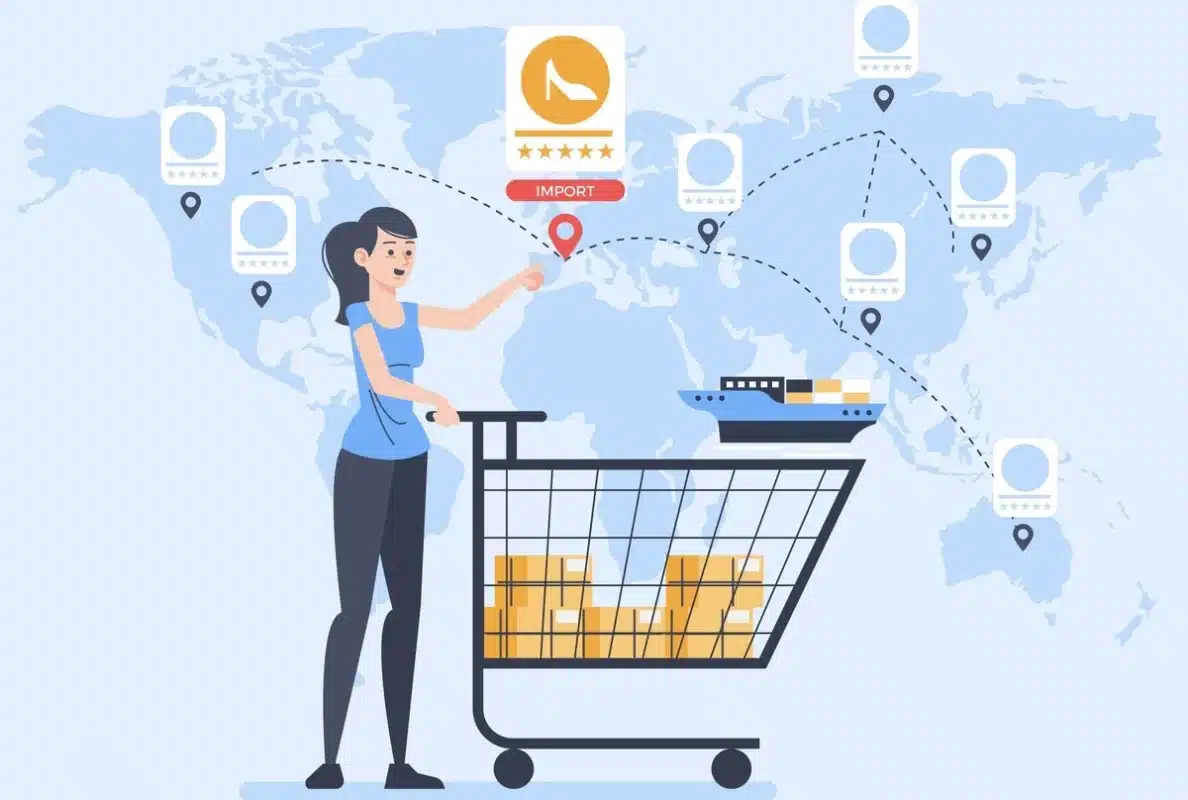Is Ecommerce legit? From Scams to Success

Ever wondered about the legitimacy of online shopping? In a digital age dominated by eCommerce, many people wonder, Is eCommerce legit?
This blog is your full guide to understanding the complexities of this topic.
We’ll answer common questions, look at the legislative structure determining eCommerce, and highlight the important aspects that distinguish an effective online purchasing experience.
From secure payment methods to the importance of consumer ratings, we’re here to figure out the truth about whether Is eCommerce legit or not.
Join us on this journey as we provide you with insights to help you confidently explore the world of online buying.
Table of Contents
About Ecommerce

eCommerce, or electronic commerce, is like an online marketplace where businesses sell things and people buy them over the Internet.
Instead of going to a physical store, you can shop from your computer or phone.
eCommerce includes all kinds of buying and selling, from regular products to digital stuff. It’s made shopping easier because you can pay online and get things delivered to your doorstep.
With secure payment systems and easy-to-use websites, eCommerce has become a popular way to shop.
As technology gets better, we see new things like shopping with our voices or using augmented reality.
Businesses benefit by reaching more customers, and people like the convenience of shopping from home in the digital world.
Is Ecommerce Legit?

Yes, eCommerce is a legitimate and widely accepted method of doing business.
It includes online transactions for purchasing and selling goods and services over the Internet.
Many well-known and respected businesses operate only through eCommerce platforms. These platforms frequently use secure payment mechanisms, encryption technologies, and privacy rules to assure transaction security and protect client information.
However, as with any sector, there may be crimes or scams. Consumers must take caution, only shop from trustworthy websites, and avoid revealing important information.
Overall, eCommerce provides a lawful and convenient means for businesses and consumers to deal, making it an important asset to the modern economy.
How to tell If an Ecommerce Site is Legit
Are you curious about the reliability of online shopping? Is eCommerce legit? these are the common questions, and it’s crucial to ensure a secure and trustworthy online shopping experience. Here are some straightforward ways to verify the authenticity of an eCommerce site:
- Secure Website Connection (HTTPS): Commence by verifying whether the eCommerce site’s URL commences with https://, the ‘s’ denotes a secure site.
- Contact Information: Legitimate eCommerce platforms furnish explicit contact details, including a physical address and phone number. The absence of this information may raise suspicions about the site’s legitimacy.
- Professional Design: Trustworthy eCommerce websites tend to invest in professional design. If the site appears outdated or contains errors, it might not be a dependable platform.
- Customer Reviews: Actively seek customer reviews on the eCommerce site or external platforms. Genuine feedback offers valuable insights into the reliability and quality of the eCommerce platform.
- Secure Payment Options: Reputable eCommerce sites consistently offer secure payment methods. Look for well-known payment gateways like PayPal or major credit cards. Exercise caution if the site only accepts less secure alternatives.
- Return Policy: Examine the eCommerce site’s return policy. Trustworthy platforms justify transparent and reasonable return policies. If the policy seems ambiguous or overly restrictive, It is best to proceed cautiously.
- Trust Seals: Keep an eye out for trust seals or badges from reputable security organizations. These symbols signify that the eCommerce site has successfully passed security checks.
- Verify Company Information: Conduct an online search for details about the eCommerce company. Legitimate businesses often feature in news articles and are duly registered with relevant authorities.
- Domain Age: Investigate how long the eCommerce site has been operational. Established sites with a lengthier history generally inspire more confidence.
- Trust Your Instincts: If anything feels inappropriate, trust your instincts. It’s always wise to move with caution and go for a well-known, trusted eCommerce site, ensuring a secure and satisfactory online shopping venture.
By being cautious and taking these factors into account, you may make good decisions about the legitimacy of an eCommerce site. It’s best to play safe and stick with more established and well-known online stores if in doubt.
Common Ecommerce Scams And How to Avoid Them

Navigating the expansive domain of online shopping introduces potential pitfalls and scams, understanding the importance of recognizing common eCommerce scams, and adopting strategies to avoid them.
The query Is eCommerce legit? resonates with many, highlighting the necessity for awareness in ensuring a secure online shopping experience.
Here’s an overview of common eCommerce scams along with tips on how to prevent them:
- Phishing Scams: Exercise caution when encountering unexpected emails or messages soliciting personal information. Verify the sender’s legitimacy and abstain from clicking on suspicious links.
- Fake Websites: Look over the website’s URL for accuracy, confirming it commences with “https://” for a secure connection. Rely on customer reviews and choose purchases from reputable online establishments.
- Counterfeit Products: Choose well-known eCommerce platforms with established reputations. Conduct thorough research on product reviews and approach deals that seem too good to be true with a wise eye.
- Identity Theft: Safeguard yourself by employing powerful, unique passwords for online accounts. Regularly monitor bank and credit card statements to detect any signs of unauthorized transactions.
- False Advertising: Exercise caution when encountering exaggerated claims and unrealistically low prices. Verify product details and reviews to ensure authenticity.
- Unsecured Payment Methods: Prioritize secure payment methods such as credit cards or reputable payment gateways. Withhold from engaging in transactions through insecure channels.
- Non-Delivery Scams: Stick to reputable sellers and closely monitor order progress. In cases of excessive delays, proactively contact the seller and exercise caution regarding those accepting unconventional payment methods.
- Bait-and-Switch Tactics: Monitor product descriptions closely and cross-check with advertisements. If the received product significantly differs, promptly contact the seller and, if necessary, report the issue.
- Unsecured Wi-Fi Risks: Avoid making online purchases using public Wi-Fi networks. Look for a secure, private internet connection when entering sensitive information.
- Lack of Customer Support: Prioritize eCommerce sites offering accessible customer support. Evaluate their responsiveness before committing to a purchase.
Protecting yourself with these precautions and staying vigilant significantly lowers the chances of becoming a victim of eCommerce scams, making sure your online shopping experience is safe and enjoyable.
Perks of Using Ecommerce for Businesses

Exploring the world of eCommerce, or online business, shows the benefits for businesses using eCommerce and navigating the digital space:
- Global Reach: eCommerce eliminates geographical barriers, enabling businesses to tap into a global market without the constraints of physical storefronts. This broader market reach opens avenues for increased sales and expansive growth opportunities.
- Continuous Accessibility: Unlike traditional brick-and-mortar stores, eCommerce operates around the clock. This endless availability serves customers across different time zones and accommodates those who prefer shopping beyond conventional business hours.
- Operational Cost Efficiency: By eliminating the necessity for physical storefronts, eCommerce reduces costs associated with rent, utilities, and in-store personnel. This cost-effectiveness contributes to raised profit margins for businesses.
- Customer Convenience: Online shopping provides customers with the convenience of exploring and purchasing products or services from the comfort of their homes. This heightened convenience leads to increased customer satisfaction and loyalty.
- Data-driven Insights: eCommerce platforms generate valuable data about customer behavior, preferences, and purchasing trends. Businesses can use this data to get insights into consumer patterns, refine marketing strategies, and customize services to fulfill growing customer demands.
- Precision in Marketing: eCommerce enables precise targeting of marketing initiatives. Using data analysis, businesses can craft personalized campaigns, recommend products based on customer preferences, and implement targeted promotions to specific customer segments.
- Efficient Product Management: Automated product systems integrated with eCommerce platforms simplify stock tracking, and order management, and reduce the risk of overselling. This efficiency translates to better control over inventory and heightened order fulfillment.
- Cost-effective Marketing Strategies: Online marketing avenues, including social media, email campaigns, and search engine optimization (SEO), often prove more cost-effective compared to traditional advertising methods. This allows businesses to allocate resources strategically for maximum impact.
- Customer Reviews and Feedback: eCommerce platforms encourage customers to leave reviews and feedback, providing businesses with valuable insights into the quality of their products or services. Positive reviews build credibility, while constructive criticism presents an opportunity for refinement.
- Diverse Payment Options: eCommerce supports a range of payment methods such as credit cards, digital wallets, and online banking. Offering diverse payment options enhances customer convenience and broadens the customer base.
- Scalability: eCommerce platforms are adaptable to the evolving needs of a business. Whether a startup or an established enterprise, the scalability of eCommerce allows for seamless expansion without significant disruptions.
In essence, addressing the question, Is eCommerce legit? becomes necessary as businesses embrace eCommerce, empowering them to extend their reach, enhance operational efficiency, and strengthen their competitiveness in the dynamic and modern marketplace.
You can also use numerous eCommerce strategies, such as Connective eCommerce and Digital marketing, to boost your online shop sales and increase the legitimacy of your eCommerce store.
Tips for Staying Safe While Shopping Online
When you’re shopping online, making sure it’s secure is crucial. Here are some simple tips to ensure your online shopping experience is safe and trustworthy:
- Choose Reliable Websites: Stick to well-known online stores that you trust. Check out reviews from other shoppers if you’re uncertain about a website.
- Keep Your Devices Secure: Make sure your computer or phone has good security software. Regularly update your system and browser to stay protected.
- Create Strong Passwords: Generate strong passwords with a mix of letters, numbers, and symbols for your online accounts.
- Stay Alert to Scams: Be cautious of unexpected emails or messages. Avoid clicking on links or downloading anything from emails that seem suspicious.
- Verify Website Security: Before entering personal information, look for “https://” and a padlock symbol in the website’s address bar. These indicators mean the site is secure.
- Use Secure Payment Methods: Look for trusted payment options like credit cards or reliable payment services. These methods offer added protection against fraud.
- Monitor Your Accounts: Regularly check your bank and credit card statements for any unusual transactions. Report anything suspicious to your bank immediately.
- Protect Your Personal Information: Be mindful of sharing too much personal info online, especially on social media.
- Exercise Caution with Deals: If a deal seems too good to be true, it might not be legit. Exercise caution, especially on unfamiliar websites.
- Read Customer Reviews: Before purchasing, read reviews from other customers. This helps you gauge the reliability of both the product and the seller.
- Enable Two-Factor Authentication: Whenever possible, turn on two-factor authentication for your online shopping accounts. This adds an extra layer of security.
- Logout After Shopping: Always log out of your accounts, especially on shared computers, to safeguard your information.
- Stay Informed About Scams: Keep yourself updated on common online scams. Being aware of them helps you steer clear of potential issues.
By following these straightforward tips, you can shop online securely. Remember, staying cautious and well-informed is the key to a safe online shopping experience.
Conclusion
In wrapping up, exploring whether Is eCommerce legit or not involves being a smart shopper.
eCommerce, which simplifies shopping and provides an overload of options online, can be trustworthy if you’re cautious.
Always analyze the seller, read reviews, and opt for secure payment methods when engaging in online shopping to ensure legitimacy.
In essence, with thoughtful consideration and informed decision-making, eCommerce proves to be a reliable and enjoyable avenue for shopping.
Looking forward, as technology progresses and regulations tighten, the outlook is optimistic for an even more secure and trustworthy online shopping experience.




